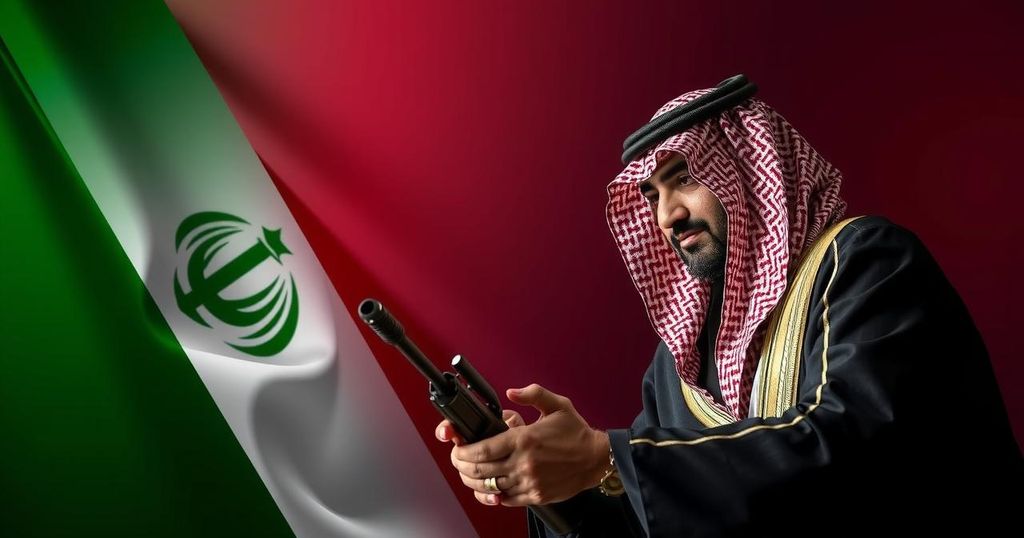Global news
ANTONIO GUTERRES, ARAB, ASIA, DIPLOMACY, GHANI GHAZBAN, GHAZBAN, HEZBOLLAH, INTERNATIONAL RELATIONS, IRAN, IRAQI MINISTRY OF DEFENCE, ISRAEL, KHALID BIN SALMAN, MIDDLE EAST, MINISTRY OF DEFENCE, NORTH AMERICA, OF DEFENCE, PALESTINE, REGIONAL STABILITY, RIYADH, SAUDI ARABIA, SAUDI VISION 2030, THA, UN, UNITED STATES
Jamal Walker
0 Comments
Iraq and Saudi Arabia Strengthen Military Ties Amid Regional Tensions
Iraq and Saudi Arabia signed a military cooperation agreement amid rising regional tensions, focusing on enhanced security collaboration, military training, and joint exercises. The deal reflects Iraq’s diplomatic strategy amidst escalating conflicts, particularly involving Iran and Israel. This pact aims to improve border security and military capabilities while maintaining Iraq’s neutrality in regional disputes.
On Monday, Iraq and Saudi Arabia formalized a military cooperation agreement aimed at fortifying defense ties amid escalating regional tensions. The signing took place in Riyadh between Saudi Defence Minister Prince Khalid bin Salman and his Iraqi counterpart, Thabet Al-Abbasi, reflecting a strategic move as both nations face security challenges, particularly concerning potential Israeli actions in response to attacks by Iran-aligned militias. The agreement signifies a pivotal advancement in collaborative military efforts as the geopolitical landscape becomes increasingly intricate. During the discussions, the Iraqi and Saudi ministers emphasized enhancing security coordination and training, along with the establishment of joint military exercises and a healthcare framework for Iraqi soldiers requiring medical services in Saudi facilities. The Iraqi Ministry of Defence underscored the significance of these developments, citing the need for a cohesive approach to maintaining regional stability and fostering deeper historical connections between the two nations. Iraqi political analyst Ghani Ghazban remarked on the essential nature of the agreement, stating that it reflects Iraq’s strategic diplomatic approach amidst mounting regional conflicts involving various actors like Hezbollah and Israel. He noted that this memorandum would enhance border security and military training capabilities, ultimately solidifying defense collaboration between Iraq and Saudi Arabia. The prevailing climate of regional conflict heightens the potential for retaliation among involved parties, and Ghazban expresses that Iraq’s efforts to strengthen ties with neighboring states are vital for ensuring its stability. In addition, Iraq has recently condemned Israel’s use of its airspace for an attack on Iran, further complicating its geopolitical stance as it seeks to uphold sovereignty while managing complex relationships with both Iran and the United States. Despite the agreement’s lack of detailed disclosures, experts perceive the Memorandum of Understanding as a balanced approach to diplomacy and military cooperation in an increasingly divided region. Iraq aims to navigate these issues delicately while maintaining peace and security for its people.
The military cooperation agreement between Iraq and Saudi Arabia comes amid heightened regional tensions, particularly with the backdrop of Iran-backed militias’ aggressive actions in areas that have historically drawn responses from Israel. Iraq’s government is attempting to balance extensive ties with Tehran alongside a partnership with Washington, which is complicated by the influence of pro-Iran factions within Iraq that engage in conflict with U.S. forces and challenge the country’s neutrality. As regional instability continues, the signing of this agreement represents a pivotal moment for Iraq and Saudi Arabia, who seek to enhance security collaboration while confronting shared threats.
In conclusion, the recent military pact between Iraq and Saudi Arabia signifies a crucial step toward enhancing bilateral defense relations amidst escalating tensions in the region. By focusing on cooperation in security coordination, military training, and strategic discussions, the two nations are taking proactive measures to combat growing instability while reaffirming their historic ties. This agreement reflects Iraq’s commitment to maintaining neutrality and stability in an increasingly polarized Middle East, balancing its relationships with Iran and the United States.
Original Source: www.newarab.com




Post Comment